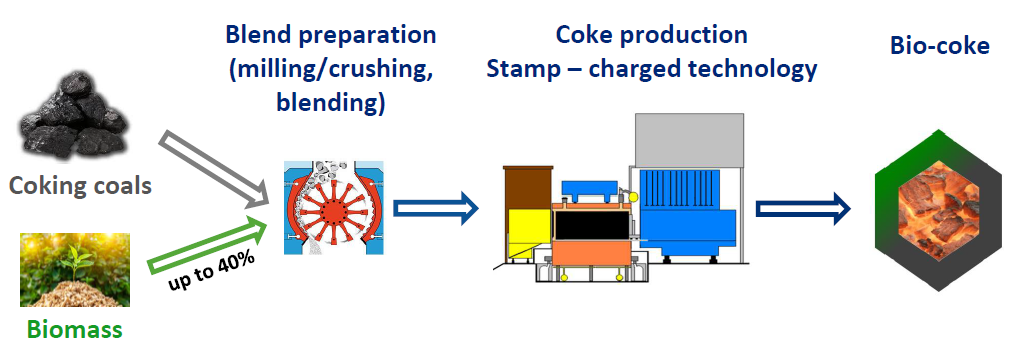
The project will be implemented by the Polish-Norwegian consortium: Institute of Energy and Fuel Processing Technology of Coal – ITPE (Poland, Project Promoter), SINTEF AS (Norway, scientific partner), ERAMET NORWAY AS (Norway, industrial partner – ferroalloy producer) and KCN – Koksownia Częstochowa Nowa Sp. z o.o. (Poland, partner industrial – coke producer).
Norwegian ferroalloy industry produces more than 1 million of tonnes of ferroalloys per year (i.e. FeSi/Si, FeMn/SiMn). Because raw materials of fossil origin (coal and coke) are used as raw materials for ore reduction, the ferroalloy industry is a significant CO2 emitter, and accounts for approximately 5 % of the total industrial CO2 emissions in Norway. Due to the adverse impact of greenhouse gases on the climate, in particular CO2, the policy of the European Union assumes and aims to reduce CO2 emissions by 40% by 2030. The Polish coke-making industry is the largest European exporter of high-quality coke. Polish coke is mainly used in blast furnaces for the production of pig iron and as a reducing agent in ferroalloy smelting processes in Norwegian smelters. Ferroalloys are enrichment additives for the production of the highest quality steel, including special purpose steel.
To achieve the goal – reduction of CO2 emission – it is necessary to replace fossil-based reducers with low- or zero-emission reducers of renewable – biomass origin. The idea of the implemented project is based on the production of a hybrid reductant with use of coal-biomass blends (replacement of non-renewable elemental carbon forming the coke structure with carbon from renewable sources) and verifying its suitability on a pilot scale.
A project consortium of experienced research units with an established position in the coke industry (ITPE) and metallurgy (SINTEF) and leading producers of coke (KCN) and ferroalloys (ERAMET) joins forces to meet the challenge. The project is planned over a period of 36 months and consists of 7 Work Packages whose consecutive implementation will contribute to achieving the project’s objectives. The benefits from the project realization will be for all consortium members. The composition consists of units from the field of research & development sector and business & industry what forms a unique interaction between science and industry with an opportunity of experience and ideas exchanges. The contacts established during the project realization will create opportunities for cooperation in the implementation of research work in the future by tightening contacts between Polish and Norwegian partners.
The main objective of the project is to develop an innovative and economically viable technology for bio-coke production for the ferroalloys industry (Mn-alloys). A novel material – bio-coke will be suitable as a sustainable and cost competitive reductant for ferroalloys production. The implementation of this technology, i.e., the use of bio-coke in the production of ferroalloys in electric arc furnaces, will reduce CO2 emissions from their production.
• Development of an innovative and economically viable technology for bio-coke production for the ferroalloys industry (SiMn and FeMn)
• Production of bio-coke – hybrid reductant containing fossil carbon and renewable carbon – of biomass origin – incorporation to the coke matrix non-fossil renewable carbon
